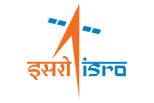International Conference on
Planets, Exoplanets and Habitability

IMPORTANT DATES
Abstract Submission Opens: 20 November 2023
Abstract Submission Closes: 12 January 2024
Registration Opens: 01 December 2023
Registration Closes: 25 January 2024
Notification of Acceptance: 16 January 2024
Conference dates: 05 – 09 February 2024
Mount Abu observatory visit: 10 – 11 February 2024
QUICK LINKS


PRL
ISRO
PRL Mount Abu Observatory
About ICPEH
The successful landing of the Chandrayaan-3 mission in the southern high latitude region of the Moon has galvanised the country. The scientific community celebrates it, particularly the planetary scientists in India and abroad. The curiosity to discover life beyond the Earth-Moon system has led to the discovery of several exoplanets. This exciting area of exoplanets and exploring habitability on them and other planetary bodies of our Solar System is gaining impetus in India and the international arena.
Astronomers at PRL initiated, for the first time in India, a dedicated program for exoplanet detections using the radial velocity method in 2008. Under this program, PRL developed a high-resolution stabilised fibexrfed spectrograph under temperature control and vacuum called PARAS, working at 65000 resolution. PARAS is attached to the PRL 1.2m telescope at Mt. Abu. PARAS is responsible for some of the exoplanet detections in 2018 and after that with K2 and TESS candidates. Subsequently, PRL developed PARAS-2, working at 100,000 resolution for its newly installed 2.5m telescope at Gurushikhar, Mt. Abu, in October 2022. PARAS-2 is designed to have sub-1m/s precision radial velocity for small planet detections.
PRL is organising a week-long International Conference on “Planets, Exoplanets and Habitability.” The proposed conference will have the participation of experts in planetary sciences, exoplanets, Super-Earths detections and characterisations, including their atmosphere and habitability. The conference is a platform to promote networking and benefits early, mid-, and senior career scientists, researchers, space technology and mission innovators, and start-ups. This will also be an excellent opportunity for the foreign scientific community to witness the advancement in Indian science and technology and research in planetary science and exploration.
Such an international event will impact summarising current knowledge, foster cross-pollination of understanding and ideas across traditional disciplinary boundaries, and identify opportunities that shall shape future directions in planetary research and space exploration in India and at international levels.






